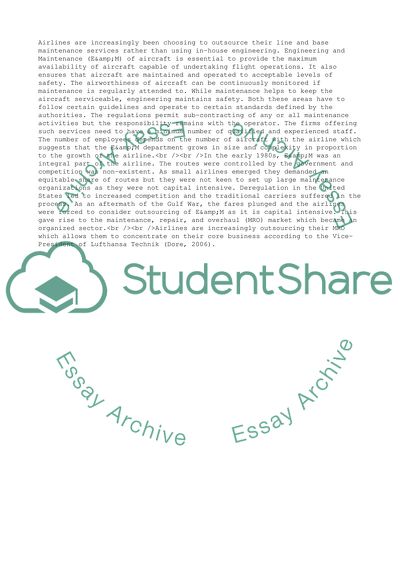Cite this document
(Reasons Why Outsourcing Has Gained Popularity in Airline Sector Coursework, n.d.)
Reasons Why Outsourcing Has Gained Popularity in Airline Sector Coursework. https://studentshare.org/business/1707628-explain-the-main-features-that-lead-an-airline-to-select-using-outsourcing-for-line-and-base-maintenance-services-rather-than-using-in-house-engineering
Reasons Why Outsourcing Has Gained Popularity in Airline Sector Coursework. https://studentshare.org/business/1707628-explain-the-main-features-that-lead-an-airline-to-select-using-outsourcing-for-line-and-base-maintenance-services-rather-than-using-in-house-engineering
(Reasons Why Outsourcing Has Gained Popularity in Airline Sector Coursework)
Reasons Why Outsourcing Has Gained Popularity in Airline Sector Coursework. https://studentshare.org/business/1707628-explain-the-main-features-that-lead-an-airline-to-select-using-outsourcing-for-line-and-base-maintenance-services-rather-than-using-in-house-engineering.
Reasons Why Outsourcing Has Gained Popularity in Airline Sector Coursework. https://studentshare.org/business/1707628-explain-the-main-features-that-lead-an-airline-to-select-using-outsourcing-for-line-and-base-maintenance-services-rather-than-using-in-house-engineering.
“Reasons Why Outsourcing Has Gained Popularity in Airline Sector Coursework”. https://studentshare.org/business/1707628-explain-the-main-features-that-lead-an-airline-to-select-using-outsourcing-for-line-and-base-maintenance-services-rather-than-using-in-house-engineering.


